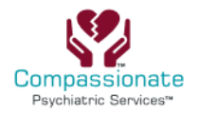
Client confidentiality, which is also know as therapy confidentiality, counseling confidentiality, or client-patient confidentiality, is a cornerstone of the therapeutic relationship. It is a principle that ensures that what is shared between therapist and client remains confidential. This includes information about the client's mental health, personal life, and therapy sessions. In other words, what happens in therapy stays in therapy.
Despite common misconceptions, client confidentiality applies not only to psychotherapy but to all types of counseling relationships. Understanding confidentiality is essential for anyone considering therapy or counseling.
What is Client Confidentiality
Client confidentiality requires therapists, psychiatrists, psychologists, and the majority of other mental health practitioners to preserve their clients' privacy by not disclosing the contents of therapy session. In order to share information, a healthcare provider would need to obtain a client's permission.
What is Patient-Privilege
The psychotherapist patient privilege is a legal principle that protects the confidentiality of the communications between a patient and their psychotherapist in a legal setting such as a court of law. Both confidentiality and privilege work together to encourage clients to be open and candid with their therapist without fear of retribution.
How Do Therapists Protect Client's Confidentiality?
Most healthcare providers are legal obligation to keep any information you tell them a secret by state laws, as well as federal laws (i.e., Health Insurance Portability and Accountability Act (HIPAA)). Therefore, therapists take confidentiality very seriously. They understand that if clients do not feel safe sharing information freely and openly, then therapy will not be effective. Therapists work hard to create a secure and confidential space for their clients, and they take steps to protect client confidentiality at all times. There are a few things that therapists will do to help protect a client's confidentiality:
Use a secure client portal.
Your therapist should used a secure client portal to protect confidential information. A secure client portal is a password-protected website that allows clients to share information with their therapists online. This is a safe and secure way to send messages, documents, and other files to your therapist. It also allows therapists to respond quickly and efficiently to any questions or concerns you may have.
Destroy therapy notes after they are no longer needed.
Most therapists keep therapy notes to document their work with clients. However, once therapy is finished, and a specific time frame has passed, these notes are no longer needed. Therapists will usually destroy them or store them in a secure location. This helps to protect client confidentiality and ensures that no one can access therapy notes without the therapist's permission.
Get consent before sharing information.
It is among the most common confidentiality rules that therapists should always get consent from their clients before sharing any confidential information. This includes things like sending referrals to other mental health professionals or discussing therapy with family members. If you have any concerns about how your confidential information will be used, be sure to discuss this with your therapist.
Sign a confidentiality agreement.
Some therapists ask their clients to sign a confidentiality agreement at the beginning of therapy. This is a legal document that states that the therapist will not share any confidential information without the client's consent. This can be a helpful way to ensure that both parties understand and agree to the confidentiality policy. This also helps to build a confidential therapist-client relationship.
Not acknowledging you in public.
As a general rule, therapists do not acknowledge their clients if they run into them outside of therapy in an effort to protect client confidentiality. Most therapist will follow your led if they see you in a public place (i.e., if you speak to them they will say hi back). However, they still will not acknowledge you as a patient or client, unless you first state you are their client/patient.
What are the Exceptions to Client Confidentiality?
There are a few exceptions when a mental health professional must maintain confidentiality. Therapist are required to break client confidentiality, which is also know as mandatory reporting, in the following cases.
If the client is at risk of harming themselves or others (this is considered duty to warn).
If a child is being abused or neglected or suspected child abuse.
If an elderly person or vulnerable adult is being abused or neglected.
However, the therapist patient relationship rules, including confidentiality rules vary from state to state, so it is essential to consult with a therapist about their specific confidentiality policy.
Are Child Therapy Sessions Confidential
The issue of child therapy sessions and confidentiality is a complicated matter. Minors are not deemed developed enough in many states to consent to treatment, thus parents are expected to consent on their behalf. Therefore, a therapy session that is conducted for a child is considered confidential to everyone except the parents. However, a child can be reluctant to tell a therapist something if they think their parents will find out. In order to build trust with the minor in therapy, many therapists request parental consent to keep sessions private.
To make matters more, in some states children as young as 16 can seek mental health treatments on their own and consent to treatment. Thus having the same therapist patient privilege as an adult. However, in the same state, if the child is brought to treatment by their parents, the parent is considered the client/patient and granted patient privilege on the session.
How does Confidentiality Work for Marriage and Family Therapy
When a couple or family comes to therapy, they are typically asked to sign a confidentiality agreement. This means that what is said during the therapy sessions cannot be revealed to anyone outside of the therapy room without written consent from all parties involved.
How Can You Protect Your Confidential Information
Clients frequently ask us how they can protect their confidential information. While we always encourage clients to consult with their own counsel on this topic, we have compiled a list of best practices for safeguarding confidential information.
First, since the pandemic a lot of therapy is taking place virtually. Therefore, the most important thing you can do to protect your confidentiality is making sure where you conduct your session virtually is private. This means you should not have therapy in a public place (i.e., while shopping) or with other people around. If another person is listening to your session they are not require to keep your information confidential.
You should avoid sharing confidential information with anyone who does not have a need to know. If you have copies of your mental health information (i.e., treatment plans), you should take steps to physically secure this information, such as storing it in a locked file cabinet or safe. You should also encrypt electronic files containing confidential information and password-protect any devices that may have such files.
You should also limit access to confidential information to a small number of individuals within their organization who have a legitimate need for access. Finally, you should require all individuals who will have access to confidential information to sign nondisclosure agreements. By taking these precautions, clients can help ensure that their confidential information remains protected.
What Should Your Therapist Do If They Break Your Confidentiality?
Generally, it is legal for a therapist to break confidentiality. However, there may be some exceptions depending on the state in which the therapist practices. If your mental health professional breaks your confidentiality, they should inform you of the situation and apologize. They should also take steps to prevent it from happening again in the future. If they deliberately break the therapist patient privilege, you should consider reporting the situation to their supervisor and/or licensing board. They may face disciplinary action, as well as civil and criminal penalties.
A therapist violating HIPAA (Health Insurance Portability and Accountability Act) could face a number of severe penalties, including fines, loss of their license, and even imprisonment. The consequences would depend on the severity of the violation and whether it was done intentionally or not.
What about Life Coaches
Life coaches, as well as other people working in mental health care, are usually not licensed by their state and thus may not be legally required to protect your information. Instead they usually agree to ethical guidelines or company policy to not disclose information about you.
.png)








